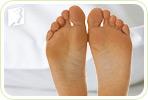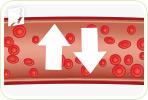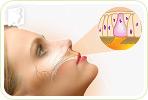
Night sweats are some of the most common and uncomfortable symptoms of menopause. They are characterized by sensations of intense heat that occur during the night and can cause a woman to wake up in a cold sweat. They are generally a result of the hormonal fluctuations that take place in a woman's body as she goes through menopause.
Night sweats can be unpleasant and difficult to manage, but there is hope! There is a variety of potential solutions that may lessen the effects of night sweats. Examples include lifestyle changes, herbal remedies, and hormone replacement therapy (HRT). Changes to your lifestyle can help prevent night sweats. Read on to learn about the best lifestyle changes you can make to prevent unbearable night sweats.
Chill Out
Lower your body temperature before you go to bed. Do this by avoiding hot drinks and thick, heavy pajamas. Try taking a cool shower before you go to bed.
Ice Cold

Sleep with a glass of ice water next to your bed so that when you wake up hot and flustered, you have something nearby to provide relief. Staying hydrated during the day and night is essential to replenish water lost during night sweats.
Easy Breezy
Use night-sweat-friendly pajamas and bed linen. Go for natural, breathable fibers like cotton or linen. It may also be helpful to layer your sheets. As your body temperature changes throughout the night, you can peel off layers or put them back on.
The Early Bird Gets the Worm

Night sweats interrupt your sleep and prevent you from getting the full seven to eight hours of sleep your body needs. To avoid the impact night sweats have on your life - fatigue, stress, irritability - try going to bed early. Even if you don't sleep, read in bed or listen to music to calm down, relax, and make up for missed sleep.
To help cope with the effects night sweats can have on your life, try eliminating some of the triggers, such as alcohol or spicy foods. In addition to lifestyle adjustments, there are other methods that may help you to manage your night sweats. Click on the following link for more information on treating night sweats.
Sources
- Boston Women's Health Collective. (2006). Hot Flashes, Night Sweats and Sleep Disturbances. Our Bodies, Ourselves.
- National Institute on Aging. (2015). Signs of the Menopausal Transition. Retrieved January 7, 2016, from https://www.nia.nih.gov/health/publication/menopause-time-change/signs-menopausal-transition
- Von Muhlen, D.G. et al. (1995). A community-based study of menopause symptoms and estrogen replacement in older women. Maturitas, 22(2), 71-8



